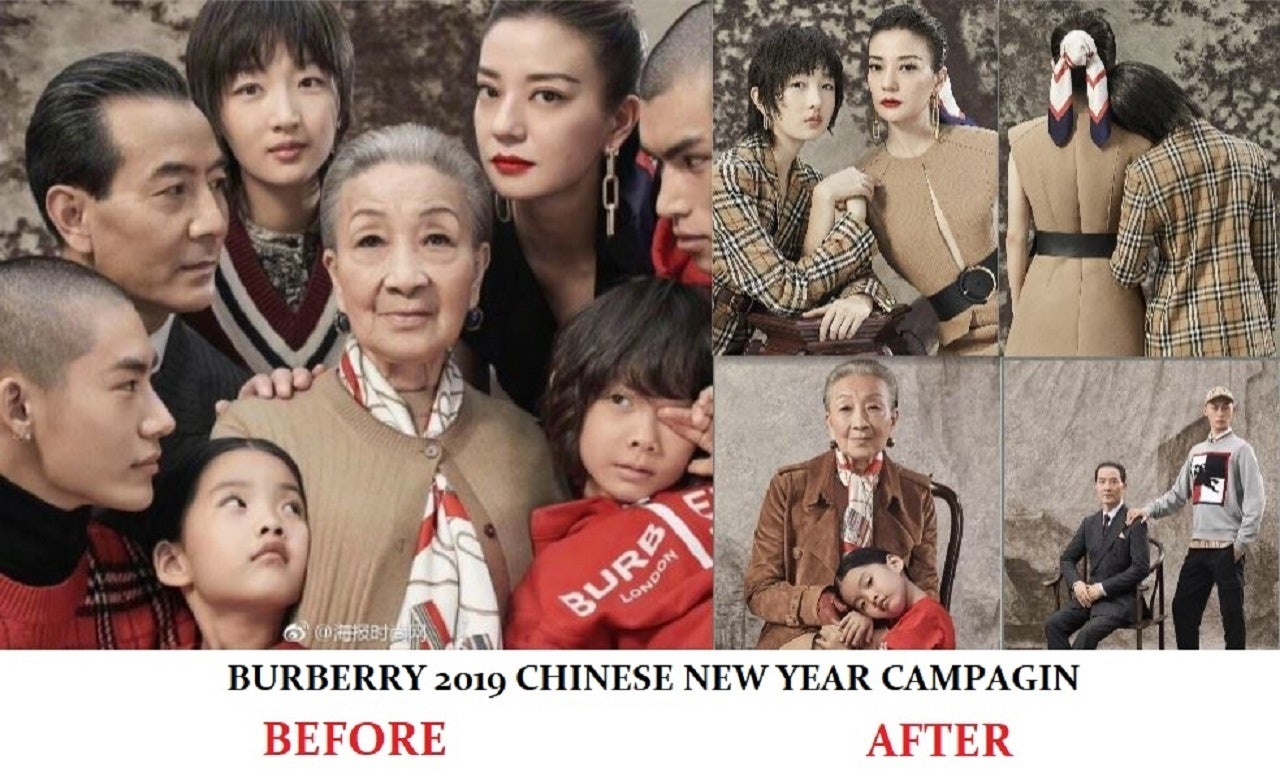Burberry, embroiled in an online backlash over its “creepy” family portraits celebrating Chinese Lunar New Year, just quietly removed those controversial images from its latest WeChat campaign.
On Thursday, Burberry pushed out a WeChat post on its official channel, named “Burberry Modern New Year (摩登新禧).” It was the same ad campaign done by the American photographer Ethan James Green and released last week, only with two heatedly-discussed family portraits, which some Chinese users had likened to Asian horror movies, missing.
Actresses Vicky Zhao and Zhou Dongyu were now the main cast, donning Burberry’s signature items. Other Asian models posed to showcase some typical family relationships -- “kinship,” “brotherhood” and “generations.” The brand also unveiled a specially designed “The Belt” handbag in red to welcome the festival. The end of the post links to Burberry’s mini-program WeChat store, encouraging readers to directly place orders.
In less than 24 hours since its release, the post has been viewed more than 40,000 times. It signals how much attention has been placed on Burberry by Chinese consumers, who keenly waited to see how the brand would react to the previous drama. On social media, some users had complained that Burberry misunderstood both the importance and nature of Chinese Lunar New Year.
Though the brand hasn’t, so far, released an official statement in response to Chinese netizens’ criticism, it seems apparent Burberry heard the online sentiment right and well. And out of fear of losing Chinese consumers, it decided to comply, making it the latest case to illustrate the huge reliance of luxury brands on this market.
Burberry’s business exposure to China and Chinese nationals have reached historical highs. According to a recent research note by Morgan Stanley, Chinese nationals contributed to around 40 percent of sales to Burberry, while 29 percent of sales were generated in the Greater China region.

